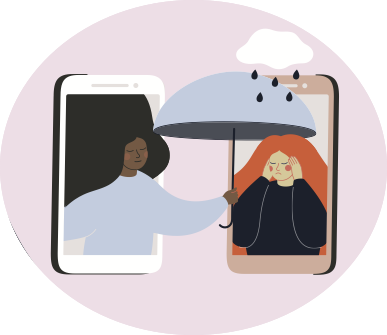Hospitalizations for Eating Disorders Grew in the Pandemic
 Alongside the many impacts of the Covid-19 pandemic on pediatric care, researchers have seen a stark increase in young adults seeking treatment for disordered eating behaviors.
Alongside the many impacts of the Covid-19 pandemic on pediatric care, researchers have seen a stark increase in young adults seeking treatment for disordered eating behaviors.
Across the United States, inpatient admissions for young adults and adolescents with eating disorders rose by a rate of about 0.7% a month in the two years before the pandemic, according to a new study published in the journal JAMA Pediatrics. But in 2020, the first year of the pandemic, that growth increased to 7.2% a month on average.
“We were able to show that at multiple sites throughout the country, there were significant increases in patients with eating disorders after the start of the pandemic — that this wasn’t just a phenomenon in one place,” said the study’s first author Dr. Sydney Hartman-Munick, assistant professor of pediatrics at the University of Massachusetts Chan Medical School.
Individual hospitals had reported a rise in eating disorder cases over the pandemic, but this study was the first to show the impact across the nation, said Dr. Jason Nagata, assistant professor of pediatrics at the University of California, San Francisco. Nagata was not involved in the study.
Researchers tracked data from 14 “geographically diverse” hospital-based adolescent medicine programs and one non-hospital eating disorder treatment program from 2018 through 2021, according to the study. The research showed that the number of people seeking treatment went up, but it cannot say that the pandemic caused the increase or if the severity of cases was worse during the pandemic, Hartman-Munick said.
“Eating disorders have been and continue to be a significant public health concern for adolescents and young adults,” she said. “Eating disorders can be severe, life-long and deadly, and recovery can take years even with timely and appropriate treatment.”
“As of the end of the study, they haven’t reached pre-pandemic baseline levels, so we are likely to feel the impact of this increase in volume for quite some time,” Hartman-Munick said.
More hands on deck
The stark rise in numbers show a need for more medical professionals trained to treat eating disorders, including mental health providers and dietitians with eating disorder expertise, she added.
“We need increased capacity at eating disorder programs to accommodate more patients, and expanded resources for patients with Medicaid, who face the most treatment limitations,” Hartman-Munick said.
Primary care physicians also need more guidance on medical management of eating disorders, Nagata added.
How to help your child
Teens and young adults facing eating disorders need professional treatment, ideally with an interdisciplinary team including mental health, medical and nutrition providers, Nagata said.
“Eating disorders can lead to severe medical complications affecting the heart, brain, liver, kidneys and other organs,” he added.
“You cannot tell that someone has an eating disorder based on appearance alone,” Nagata said.
There is a stereotype that only girls develop eating disorders, but boys can, too, Nagata said. In boys, eating disorders often present as an obsession with excessive exercise and being muscular, sometimes with a focus on muscle-building supplements, he added. These cases are often underreported and undertreated.
Generally, warning signs for anyone with an eating disorder can include a preoccupation with size, weight, food or exercise that worsens a person’s quality of life, Nagata said.
“Other red flags include if an individual engages in fasting, significant caloric restriction, vomiting or using laxatives or diet pills to lose weight,” he said.
Families should raise concerns with a health care provider if they see these signs, Nagata said. The professional can assess for an eating disorder and refer families to the resources to utilize next, he added.
Excerpted from “Hospitalizations for eating disorders grew in the pandemic. The problem isn’t over, experts say” from CNN. Read the full article online.
Source: CNN | Hospitalizations for eating disorders grew in the pandemic. The problem isn’t over, experts say, https://www.cnn.com/2022/11/07/health/eating-disorders-pandemic-wellness | © 2022 Cable News Network
A screening can help you determine if you or someone you care about should contact a mental health professional. CHC teletherapy services are available now. Call or email our Care Coordinators at 650.688.3625 or careteam@chconline.org to set up a free 30-minute consultation appointment.





